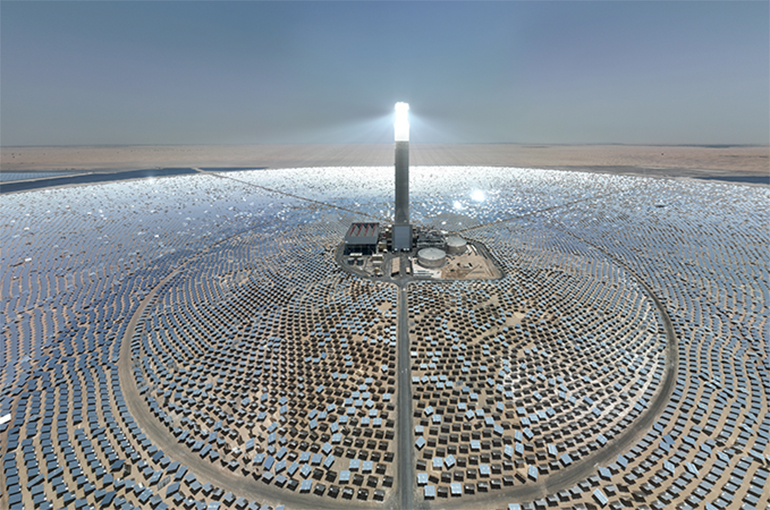 Middle East Is Bullish on China’s High-Tech, Renewable Energy Sectors, Gulf Analytica CEO Says
Middle East Is Bullish on China’s High-Tech, Renewable Energy Sectors, Gulf Analytica CEO Says(Yicai) Oct. 31 -- The Middle East has been trying to reduce its dependence on oil in recent years, and investors in the region have been increasingly interest in the Chinese high-tech and renewable energy sectors, according to the president and chief executive officer of consultancy firm Gulf Analytica.
The National Investment Strategy launched by Saudi Arabia in 2021 will lead to a very significant increase in trade and investment between China and the Saudi kingdom, David Gibson-Moore, who is also the chairman of Dubai-based alternative investment platform Dalma Capital Management, told Yicai.
China and Saudi Arabia have established strong economic ties for decades, mainly due to China’s high demand for Saudi oil, Gibson-Moore noted. Trade between the two countries exceeded USD106 billion last year, up 30 percent from the previous year, according to data from the Saudi government. This compares to USD55 billion of trade between Saudi Arabia and the United States.
“The NIS focuses on six specific sectors, including clean technology, metals and mining, and transport and logistics,” Gibson-Moore pointed out. “During the two-day Arab-China Business Conference held in Riyadh in June, over 30 agreements worth over USD10 billion were signed across multiple sectors, including technology, renewables, agriculture, real estate, mining, tourism, and healthcare, which demonstrates clearly the extent of the business potential between Saudi Arabia and both China and the larger Gulf Cooperation Council.”
Before the NIS, Saudi Arabia had also introduced Vision 2030, an initiative to attract global investors. There is a similar plan in the United Arab Emirates, We the UAE 2031, Gibson-Moore noted.
In terms of Middle Eastern investments into China’s new energy vehicle sector, the most notable deal was that between Chinese NEV startup Nio and CYVN Holdings, an investment firm backed by the Abu Dhabi government. Nio announced in June that CYVN would purchase over 124 million Class A ordinary shares, equal to about 7 percent of the total equity, for USD1.1 billion.
“There is considerable interest in China’s tech sector through the number of fast-growing tech companies listed on the growth enterprise boards in Shanghai and Shenzhen,” Gibson-Moore said.
“Sustainability is another important theme of interest to Middle East investors,” he added. “This can be realized via A-shares providing exposure to renewable energy, electric vehicles, and battery technology.”
With intensified competition in the domestic market, Chinese companies are going global in search of new growth points. Over the past few years, Pinduoduo, Shein, and other Chinese manufacturing companies have begun to explore new opportunities in the Middle East, which has attractive tax incentives.
Meanwhile, the Middle East continues to invest in the Chinese traditional energy sector. Earlier this year, Saudi Aramco acquired a 10 percent stake in China’s Rongsheng Petrochemical for CNY24.6 billion (USD3.4 billion).
According to the deal, Aramco will supply 480,000 barrels of crude per day to China’s largest refining and chemical complex, Gibson-Moore said, adding that Aramco has also supply deals with Chinese refiners China Petrochemical Corporation, China National Petroleum Corporation, China National Offshore Oil Corporation, Sinochem Group, Norinco International, and Zhejiang Petrochemical.
Editor: Futura Costaglione